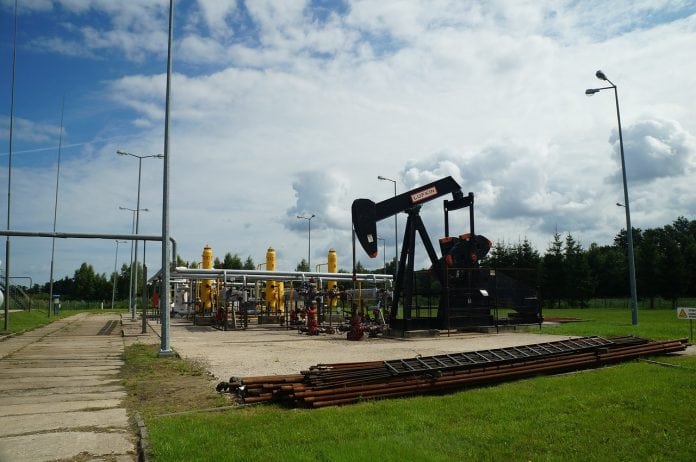
The list of companies making deep pledges on the environment is growing longer by the day. About one-quarter of Fortune 500 businesses now have carbon-neutral targets, with heavyweights such as Danone, Unilever and Vodafone leading the European charge.
But the party now has one very unexpected guest: oil majors. Could it really be that some of the world’s biggest polluters are ready to become part of the climate-change solution?
Investing along environmental, social and governance (ESG) lines has moved to the mainstream. Therefore, this question has potentially big implications for the debate round which companies qualify for a place in a sustainable portfolio. Many of the majors now argue that they should be included.
In 2020, UK oil producer BP made sweeping commitments to slash oil production by 40% over the next decade. It will also ramp up spending on renewables to 30% of the total. By 2050, the oil giant plans to be net-zero.
French firms Total and Royal Dutch Shell then added to previous commitments by saying that they, too, aimed to become net-zero energy companies by 2050 or sooner.
“Society’s expectations have shifted quickly in the debate around climate change,” Ben van Beurden, Shell’s chief executive, said at the time. “Shell now needs to go further with our own ambitions.”
Oil & Gas firms in the Middle East have made similar pledges. Last year Saudi Aramco and the Institute of Energy Economics, Japan (IEEJ), announced they had successfully demonstrated the production and shipment of 40 tons blue ammonia from Saudi Arabia to Japan, for use in zero-carbon power generation. And in Abu Dhabi, ADNOC committed to cutting greenhouse gas emissions by 25% by 2030.
Not all oil majors seem as determined. US producers Exxon Mobil and Chevron have been notable absentees to the net-zero club – even though they have made less far-reaching commitments.
There is now an undeniable groundswell in the sector, in particular among European producers. We are seeing a lot of good intentions starting to be backed up by concrete measures. It’s a very significant change in just a few short years.
The role of shareholders
Shareholders can also play a potentially influential role in this strategic shift. First, by monitoring companies’ achievement of short-term goals and voting on key issues at shareholder meetings. Second, by active and regular engagement on longer-term strategy.
In addition to pivoting away from their traditional business, oil majors have stated bold intentions to become champions of renewable energy. European oil majors are leading the way. In September 2020, BP hinted at things to come by announcing a $1.1 billion deal with Norway’s Equinor to acquire a stake in US offshore wind farms.
Similarly, Repsol, the Spanish producer, recently bought renewable-energy assets in Chile as part of an international expansion in solar and wind energy. It already has seven big renewables projects in Spain, and was an early adopter of plans to become carbon neutral by 2050.
Shorter term, few analysts doubt that oil and gas will remain in high demand for at least another decade. For investors, that means producers can potentially deliver significant cashflow via dividends for years to come – even if recent stock performance has suffered in the wake of Covid-19.
What this means for investors
What about justifying their existence in an ESG-focused portfolio? Here, investors can opt to keep track of their investments’ overall carbon footprint rather than focusing on individual companies within the portfolio.
Keeping score of total carbon emissions in a portfolio allows us to take advantage of attractive valuations. It also allows us to continue holding stock in companies we believe are taking the right steps in terms of meeting ESG criteria.
More detailed company reporting on ESG-related themes, combined with improved data analytics, now makes it possible to identify the highest-emitting companies within a given portfolio. That, in turn, allows investors to analyse the carbon footprint of portfolios and incorporate that data into their wider strategy.
The analysis can even extend to so-called Scope 3 emissions, which go beyond the immediate carbon footprint of a company to include their customers’ emissions. For the oil & gas sector, Scope 3 emissions are central to any carbon-footprint analysis. This is because they account for about 85% of the sector’s total greenhouse gas emissions.
Final thoughts …
As with all investments, there are risks and opportunities in the oil & gas sector. And given the obvious challenges surrounding the transition to a low-carbon economy, the oil majors are no exception.
However, it would be a mistake to write them off just yet. Many are getting behind electric-vehicle charging networks, building out solar capacity and developing the most innovative plastics-recycling technology. So, if you want to engage with renewables and low-carbon energy, these companies are likely to have a very meaningful role to play.
*By Iain Pyle, Investment Director, Aberdeen Standard Investments


































